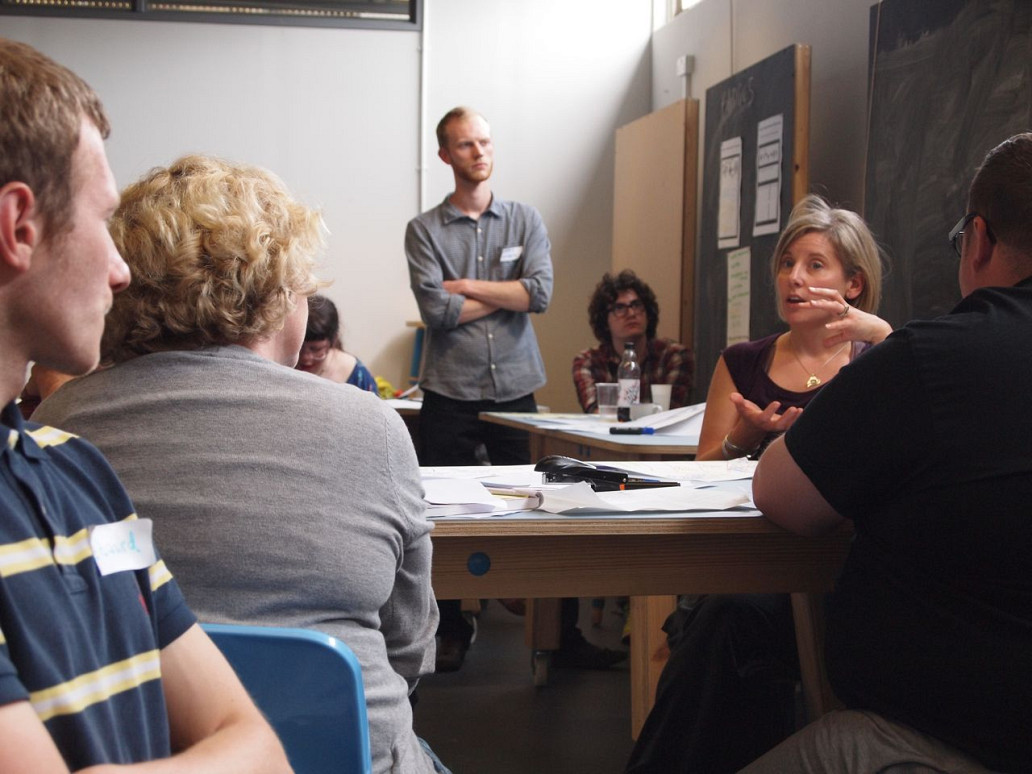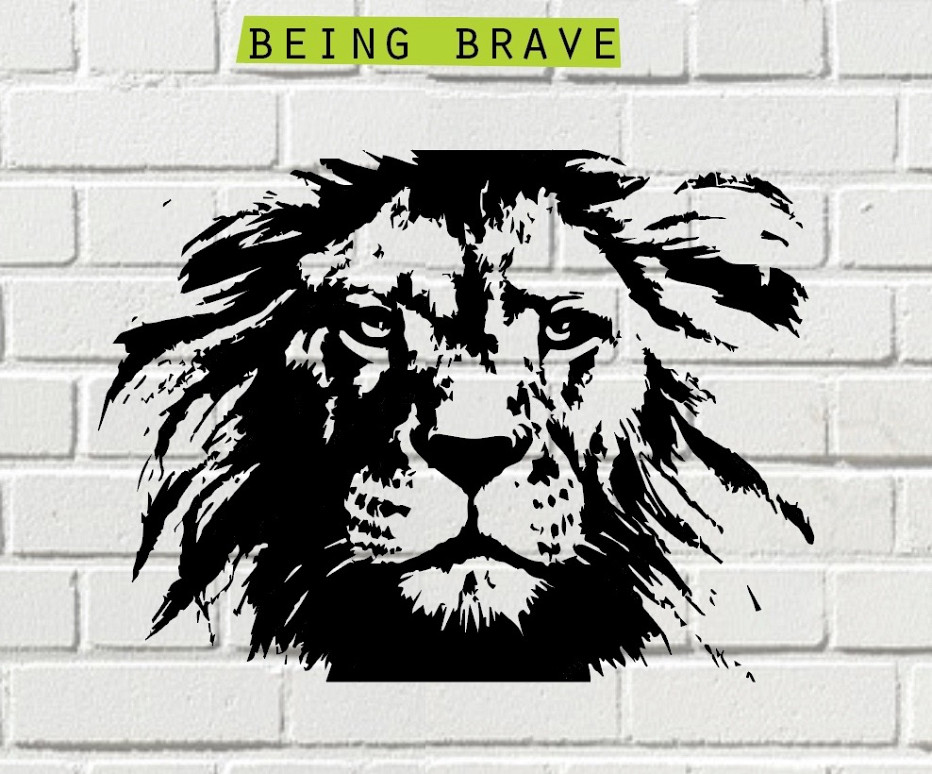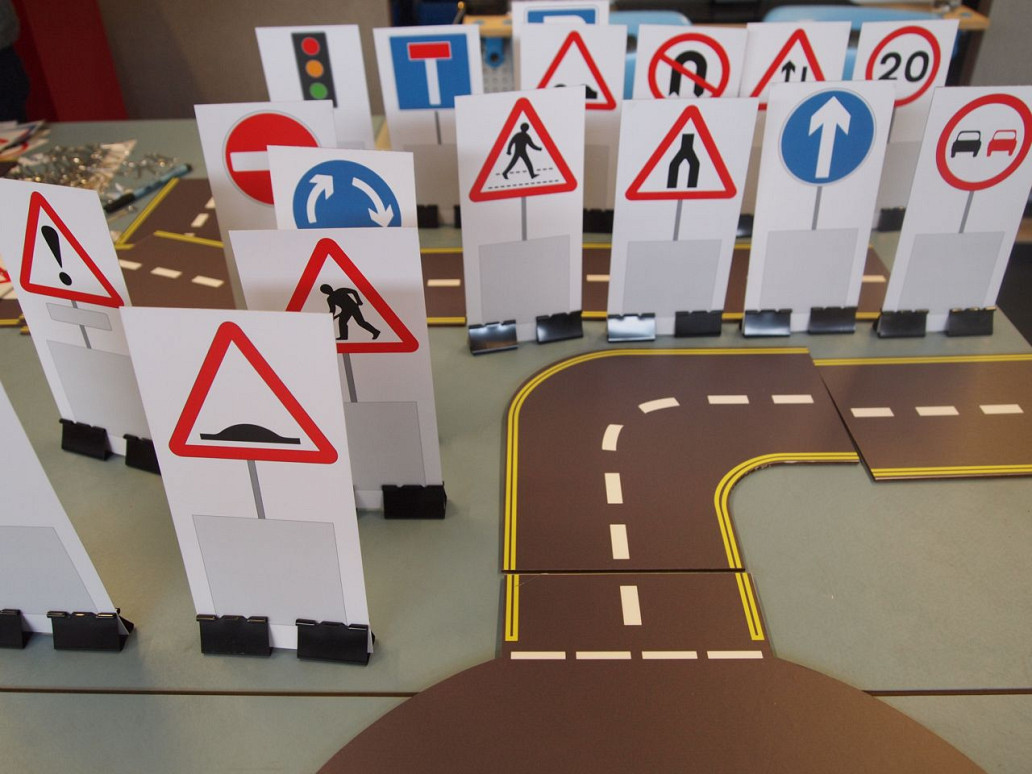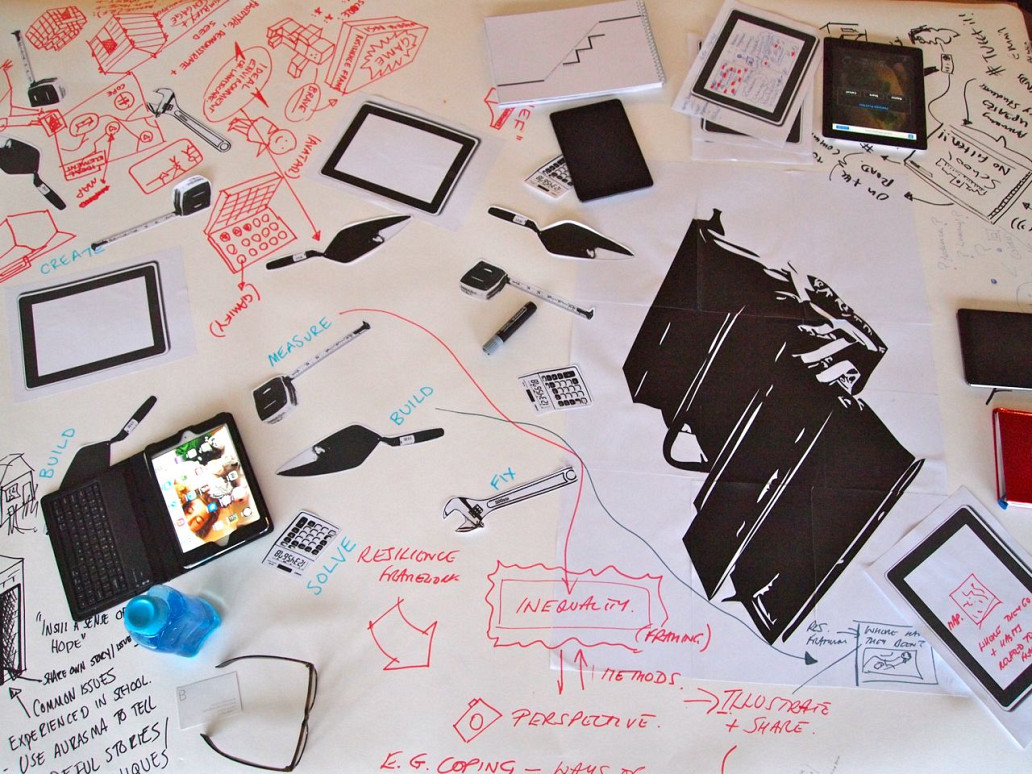Help
Community21 has selected some case study communities and projects to share across the network to inspire and inform others. Should we be featuring yours? If so get in touch.
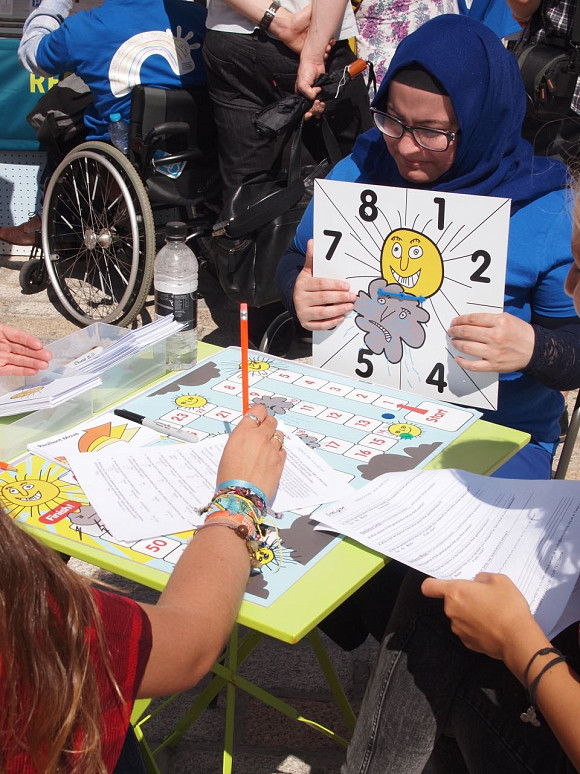
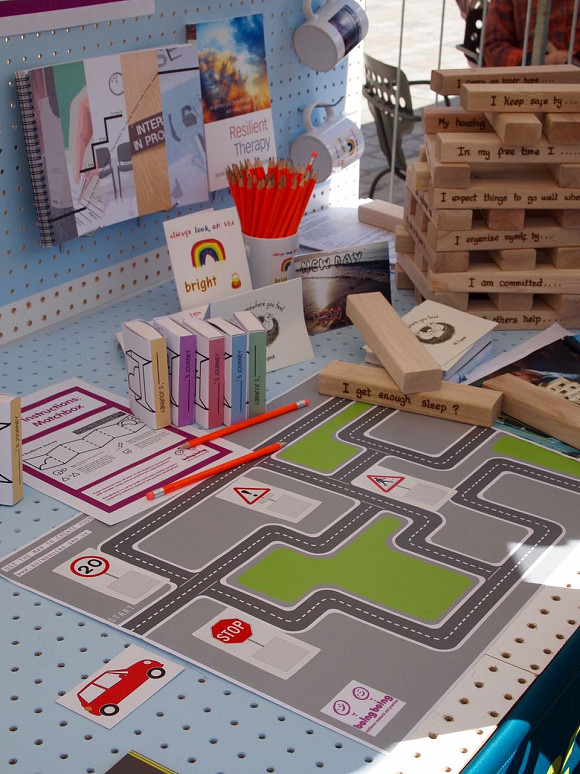
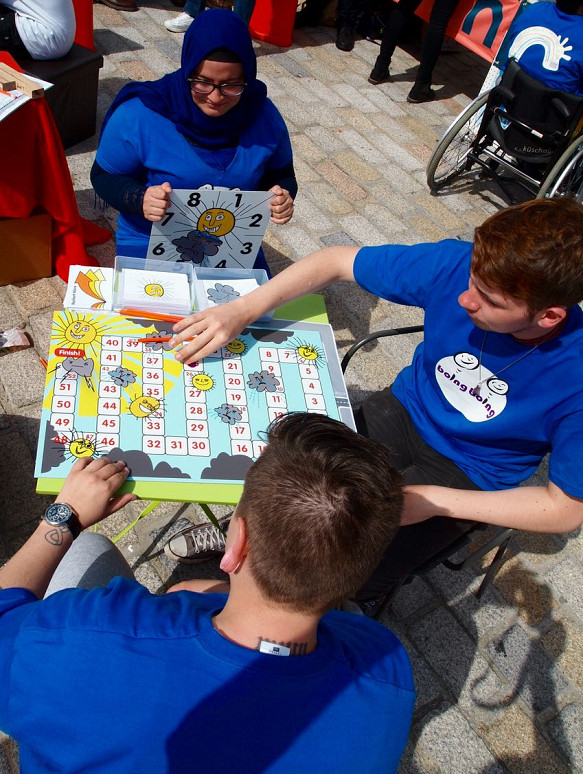
After follow-on funding from the Arts and Humanities Research Council we were awarded the opportunity to further develop the tools into saleable products and present them at the Connected Communities festival in London.
The prototype tools we co-created were developed further following testing and made into products for sale through the Boing-Boing Social Enterprise. We presented the tools at Somerset House as part of the Utopia festival and provided the public with opportunities to engage with (and buy) the products co-created by young people.
Through the process we were able to determine how young people approached the design process and used their experiences to enact opportunities to develop authentic and engaging activities which could benefit themselves and their peers. Contemporary technologies and diverse, practical experience enabled the collaborative development of compelling artefacts and products which will hopefully help improve lives.
Thanks to all involved and the ARHIC for their support funding.
see here for more info on resilience or contact nickgant@community21.org
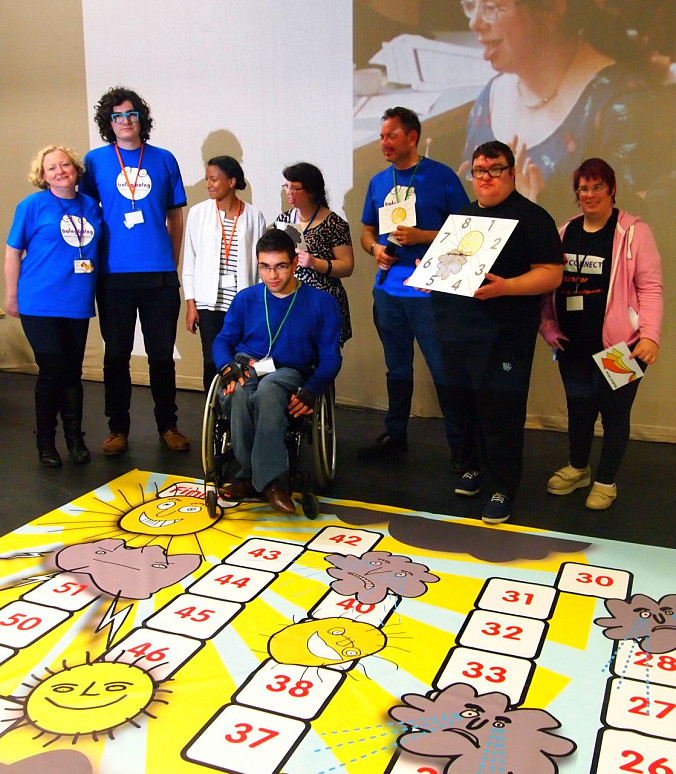
In 2015 Nick Gant and Community21 started a project with social enterprise Boing-Boing and research teams under the leadership of Professor Angie Hart to explore how design might support the resilience of young people with complex needs.
Community21 used experience in engaging young people through digital technology and co-design and co-making methods with Boing Boing's expertise in resilience. Boing-Boing, Angie Hart and her collaborators had developed a range of research driven outcomes to support knowledge in resilience which included the co-development of the 'Resilience framework (Hart et al).
They define resilience as 'beating the odds whilst also changing the odds' (Boing Boing 2013).
Community21 worked to co-devise design workshops with Boing-Boing young people with complex needs aimed at co-designing tools which could increase interactions with the framework. We explored how the framework could be embedded in interactive tools and games to help young people to learn about resilience and improve the lives of others by sharing these tools with their peers.
This work was supported by Arts and Humanities Research Connected Communities Funding.
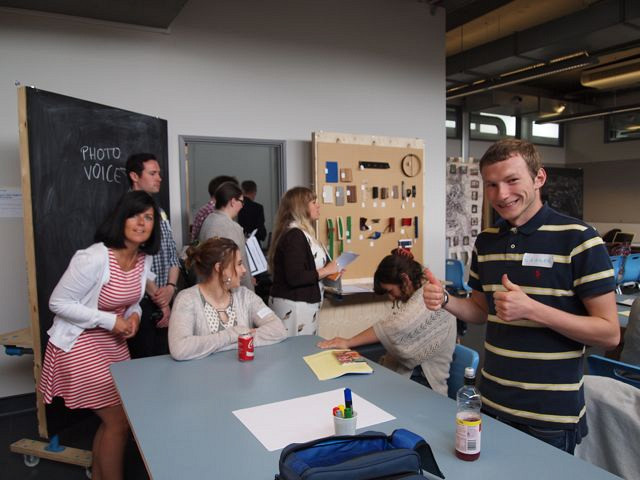
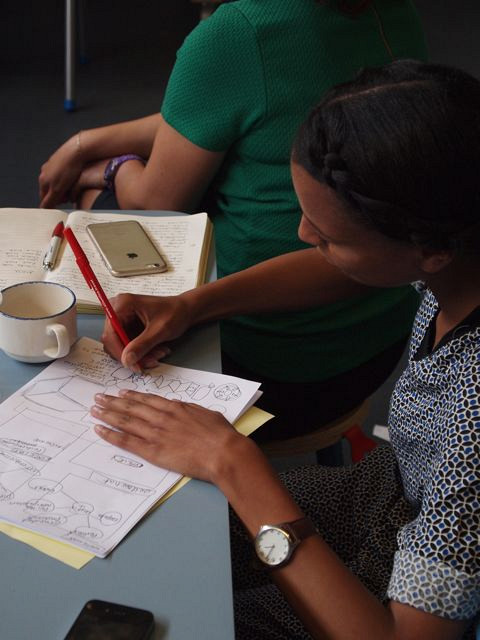
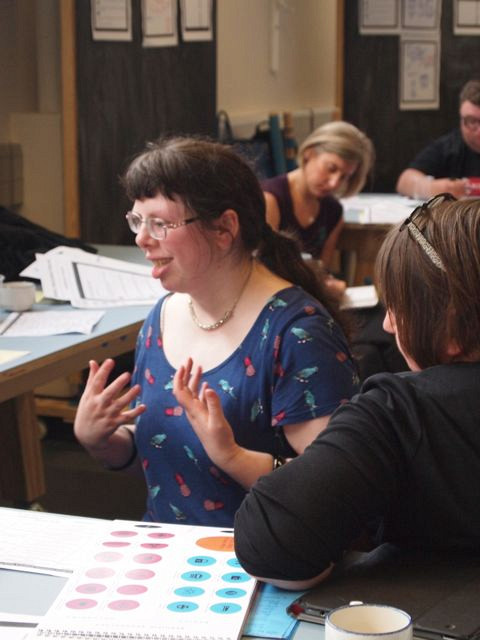
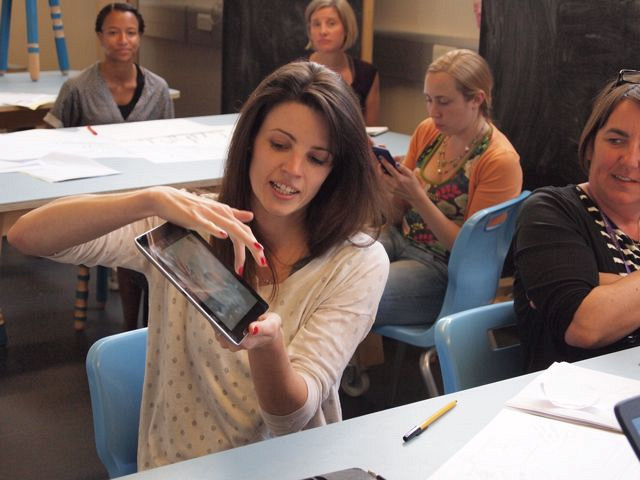
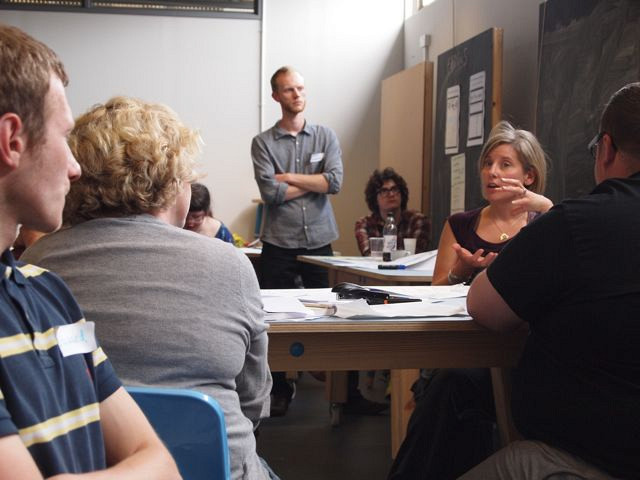
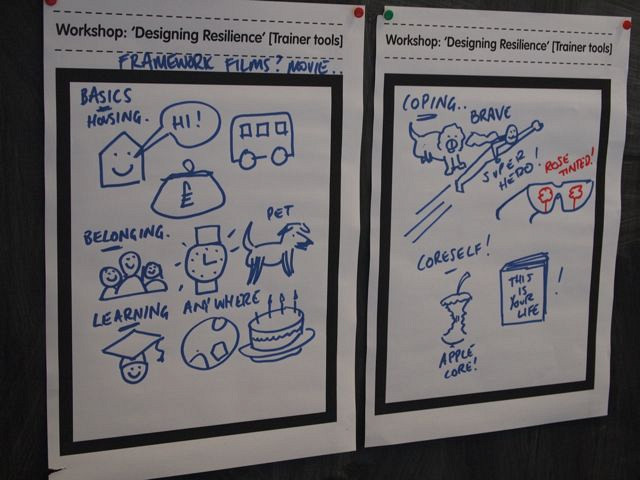
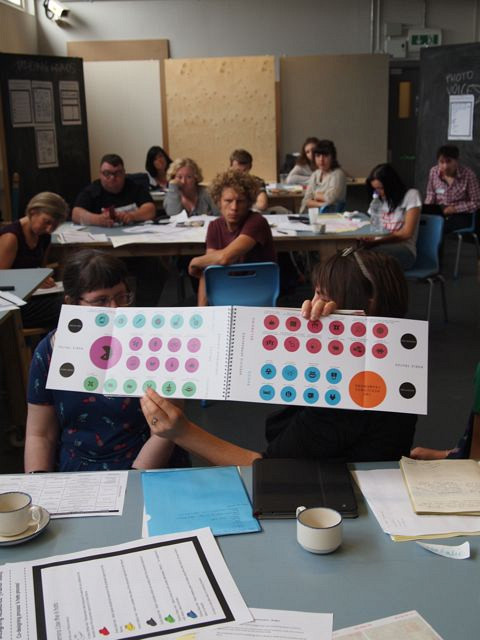
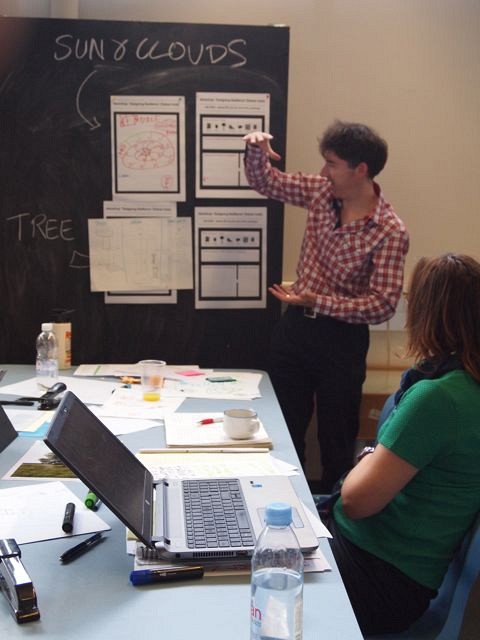
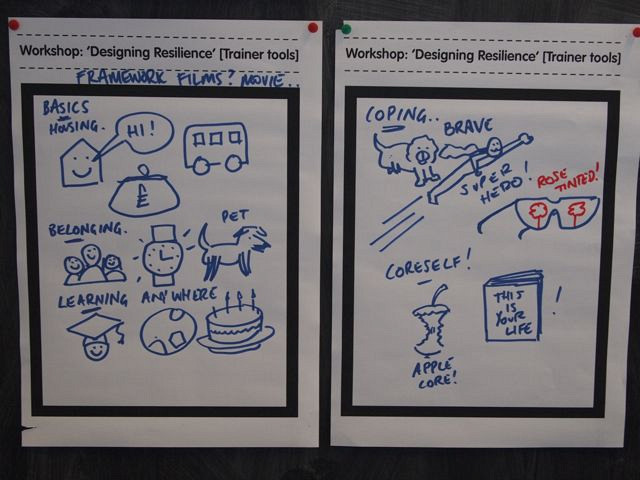
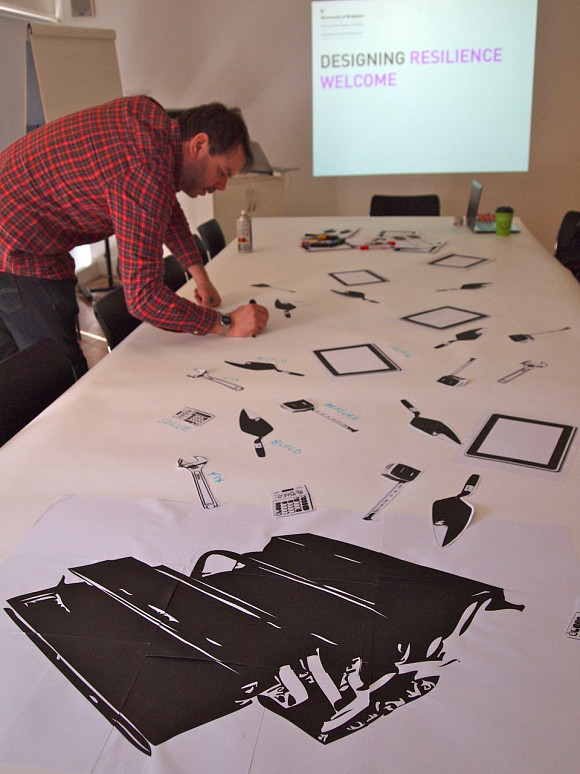
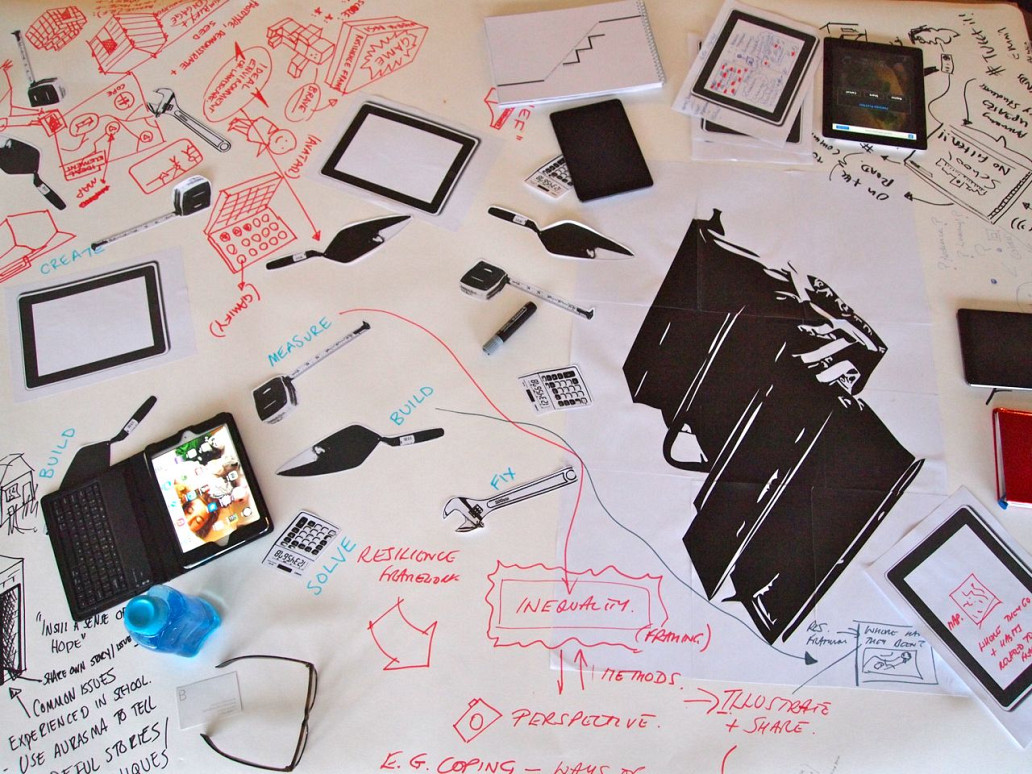
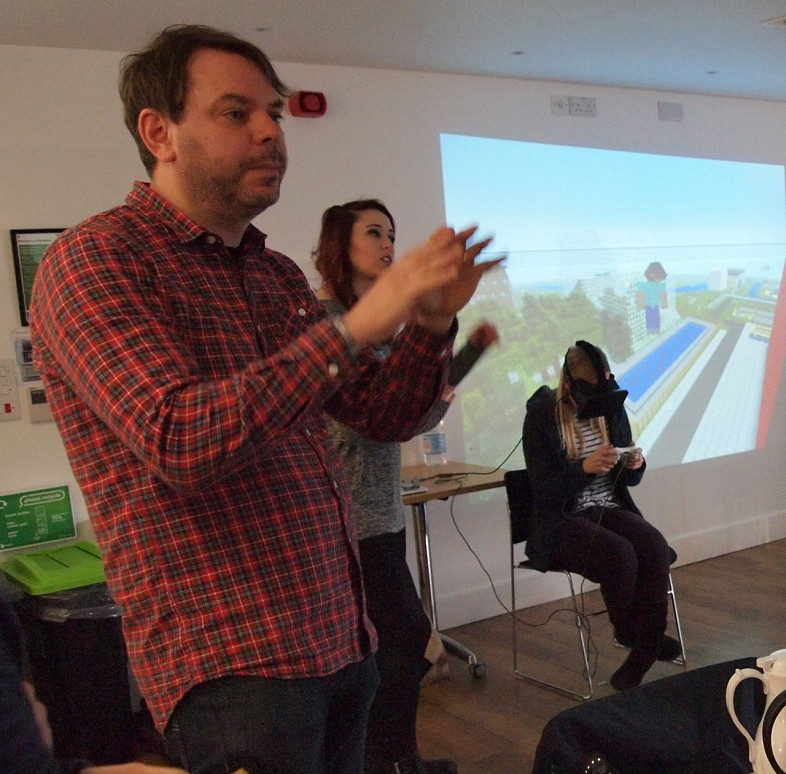
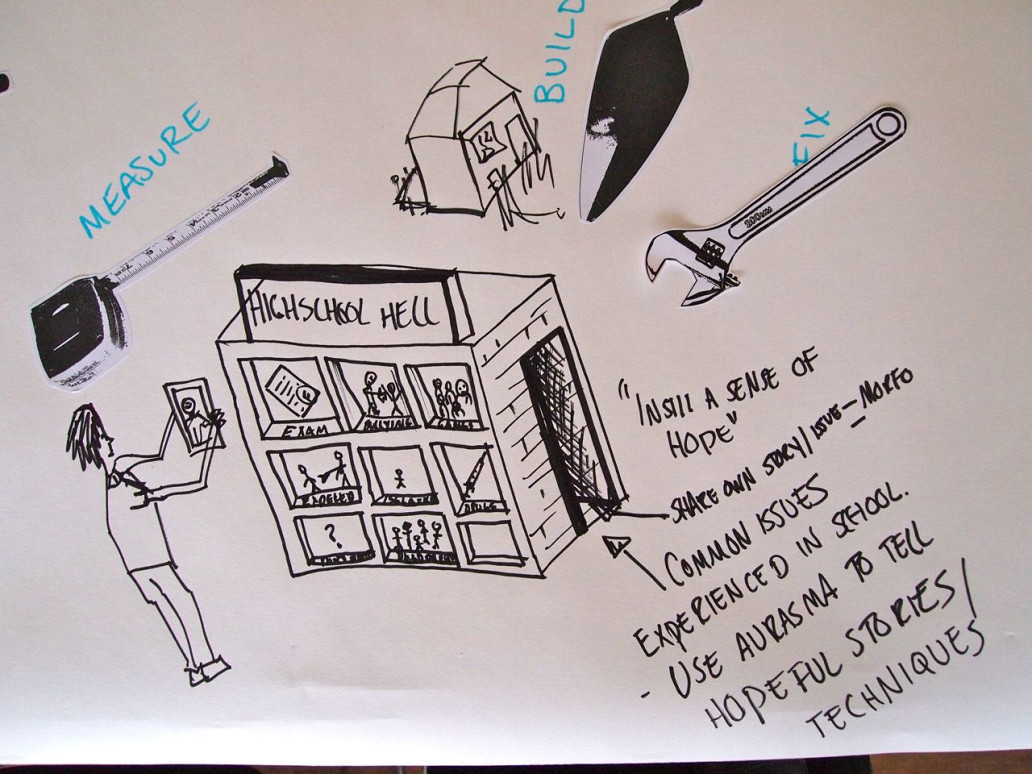
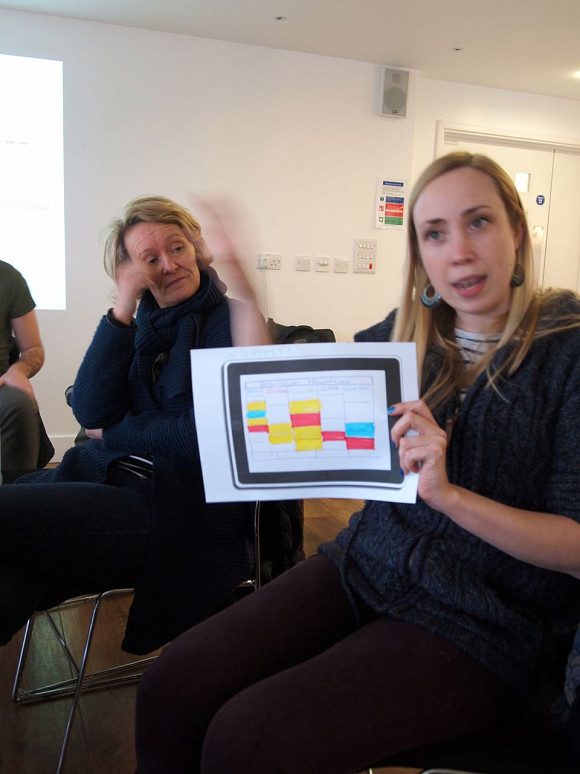
The collaborative team bought together young people and organisations supporting the delivery of care and mental health services to young people from across the UK.
In teams we used some fun co-design methods and exercises to explore experiences and the resilience framework and developed a range of proposals for tools that might support greater resilience and enable a divers range of young people to learn about how to improve their capacity for resilience.
Nick Gant from Community21 and students from the University of Brighton were was able to bring design and making methods and experience of different digital tools and products that could support the process being devised by the young people.
The event was a great experience and really helped to develop proposals that we could co-produce and test in the next phases.
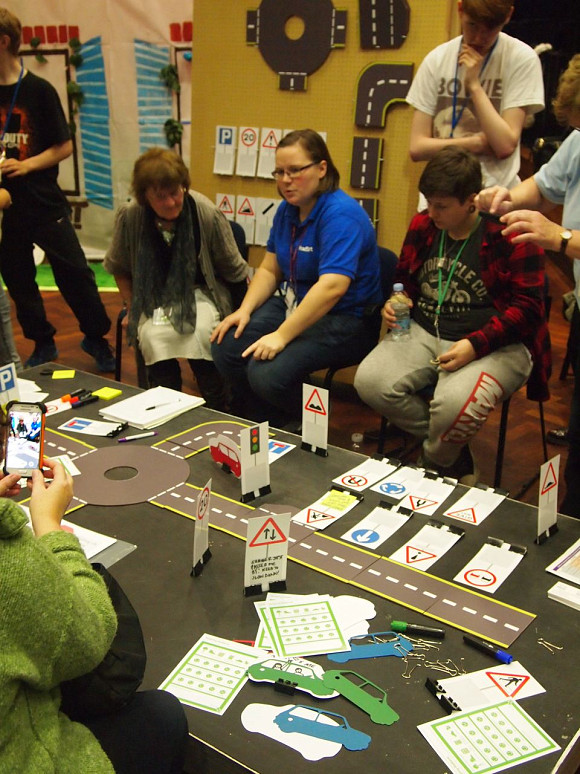
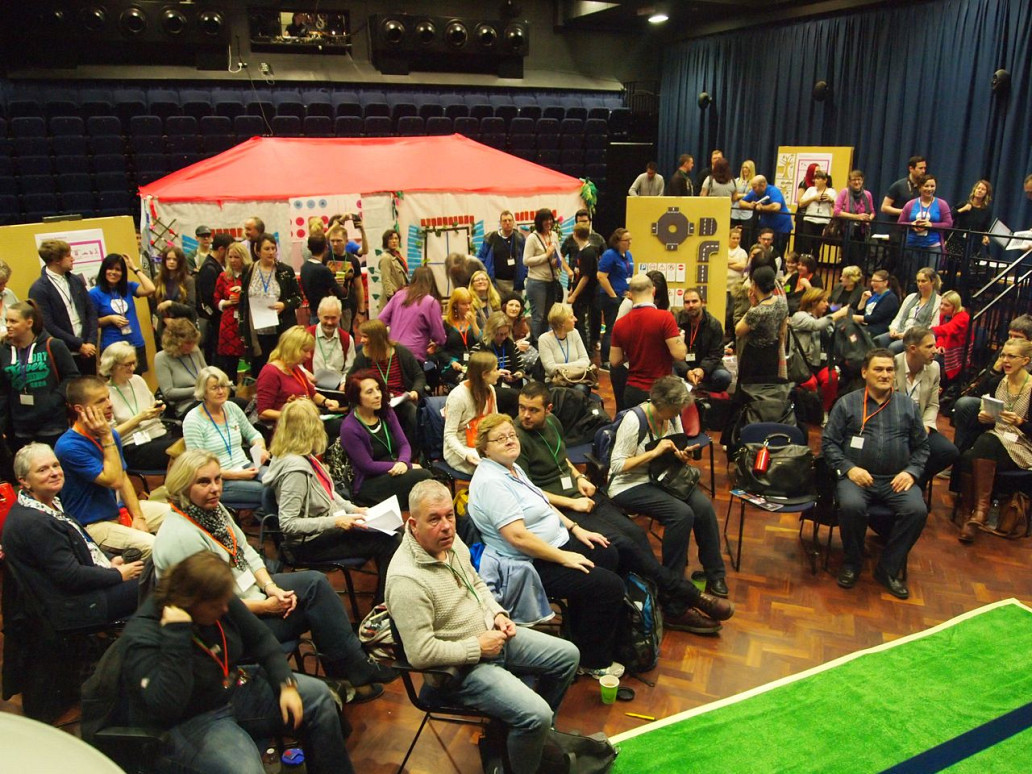
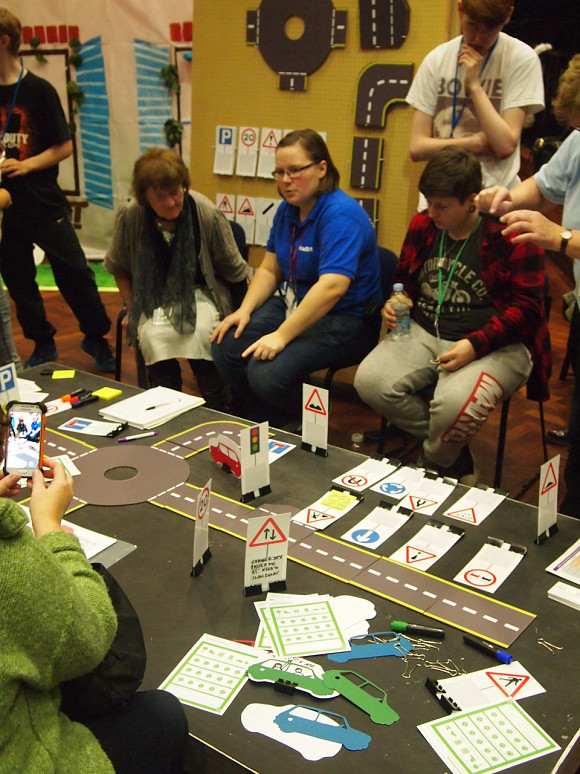
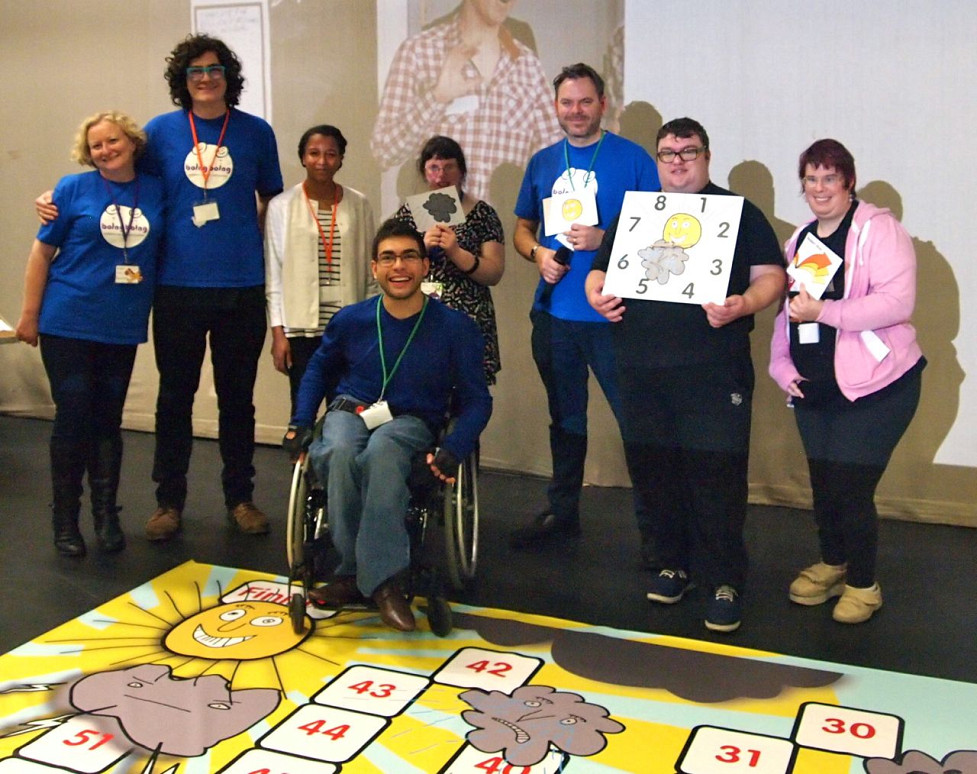
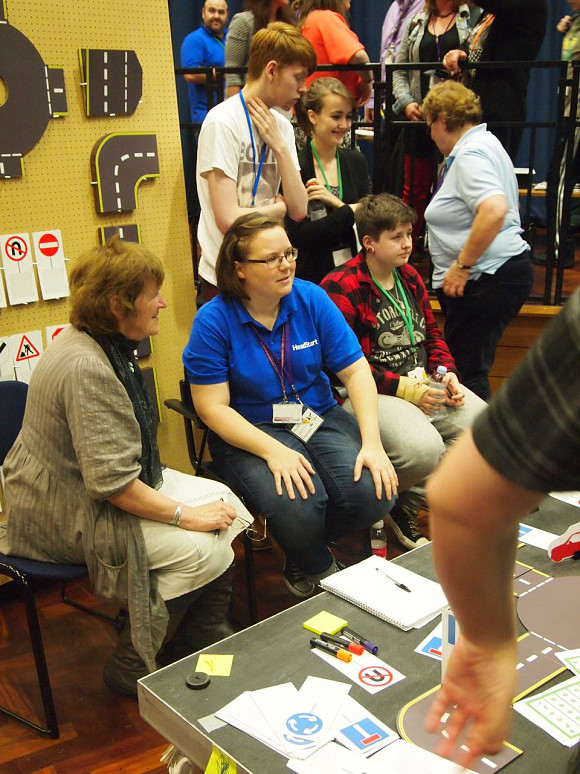
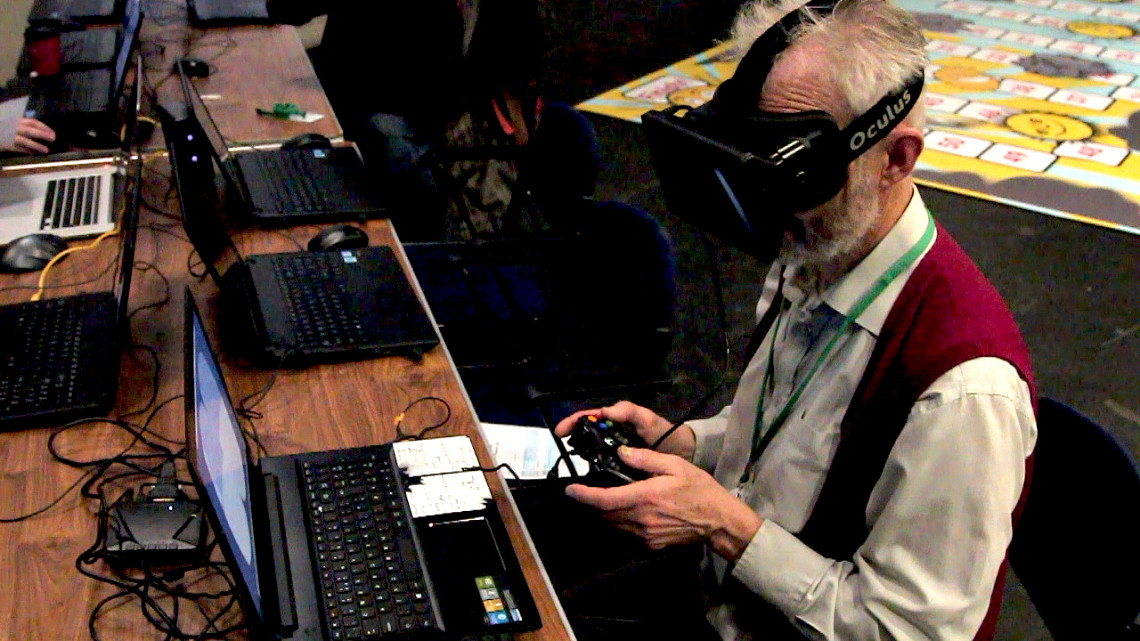
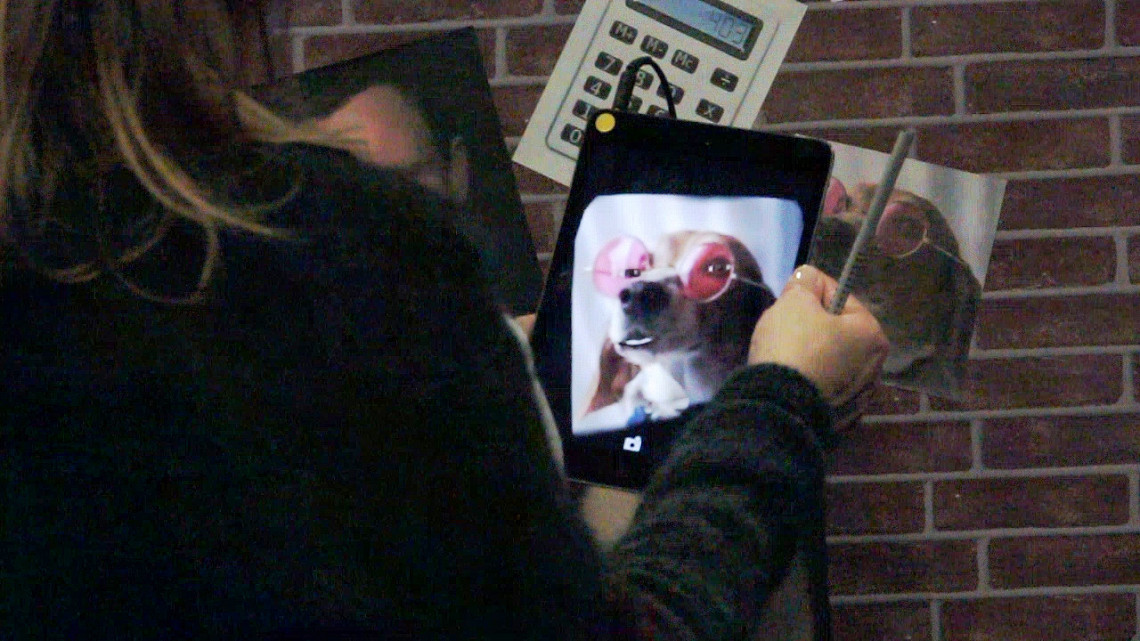
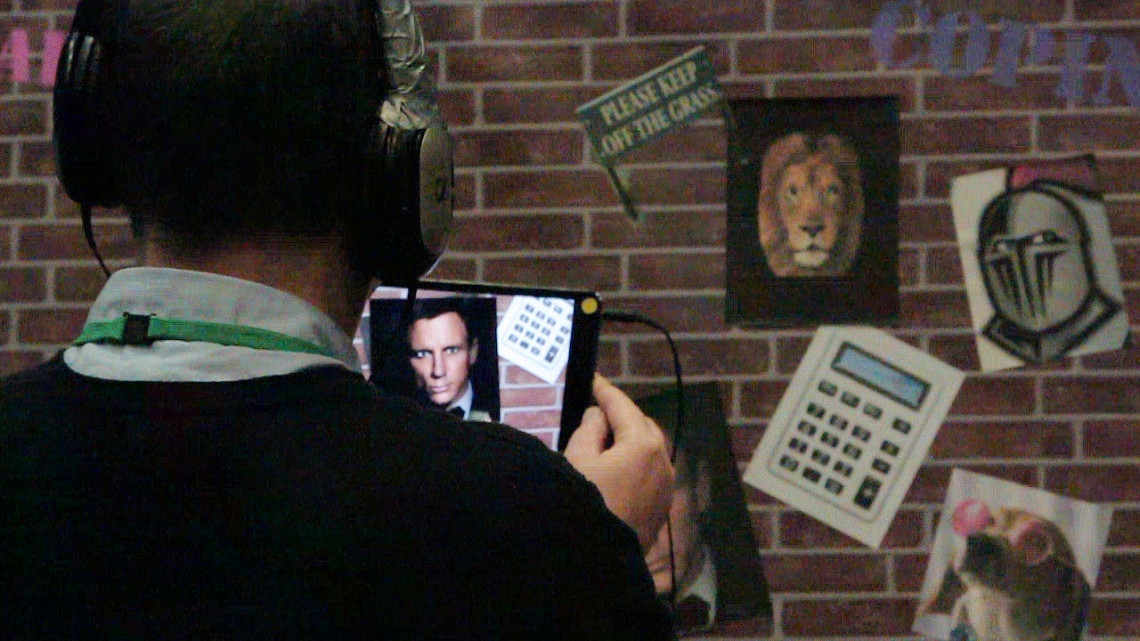
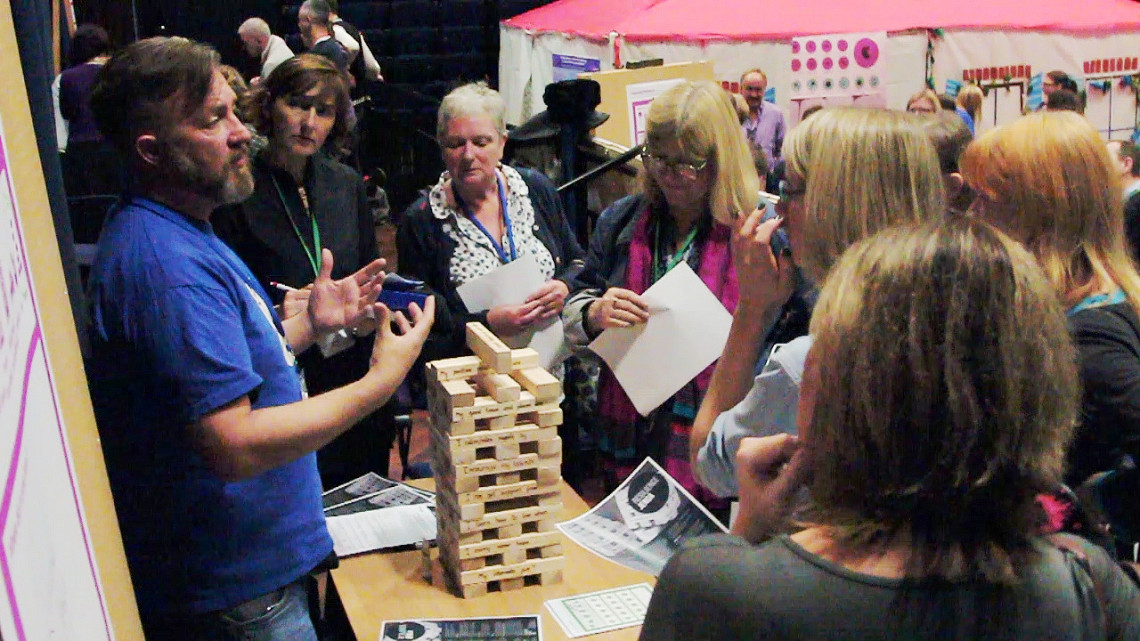
Following the workshops the team set about co-producing prototype tools that integrated the various knowledges, experiences and expertise. Some were digital interactions, some were moving image, some games and some were group activities. We invited an audience of participants and organisations involved in young people's care to an event to come and experience the tools and provide us with feedback, which we could use in the research process to improve the outcomes.
The event was great fun and enabled lots of practical discussion and inspiration.
Examples of some of the tools co-developed included:
Resilience Road Using the metaphor of a road journey the tool enables a young people to reflect on the journey of their lives and plan the future. A 'highway code' of symbols and objects is devised to allow participants to imagine and share their resilient actions.
Resilience Wall
This uses augmented reality and animation apps to turn the text based Resilience Framework into an interactive wall where animations are triggered using a smartphone or tablet. The animations, created by young people, characterise the elements of the framework with funny and engaging characters which speak to you.
**Sun and Clouds ** This fun game is played in groups and encourages young people to explore and share their perceptions of what are the issues and opportunities with being resilient whilst progressing through the game.
